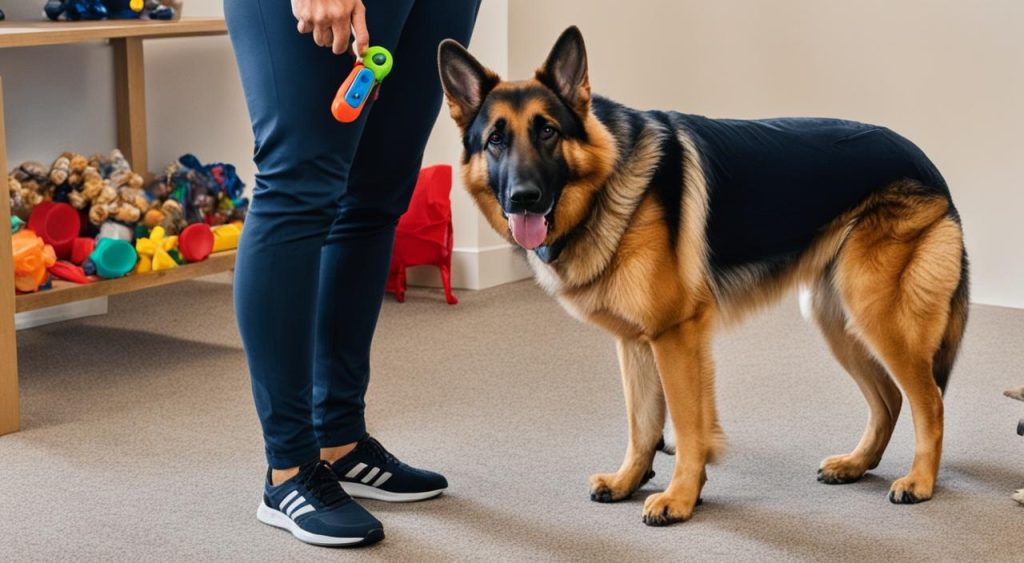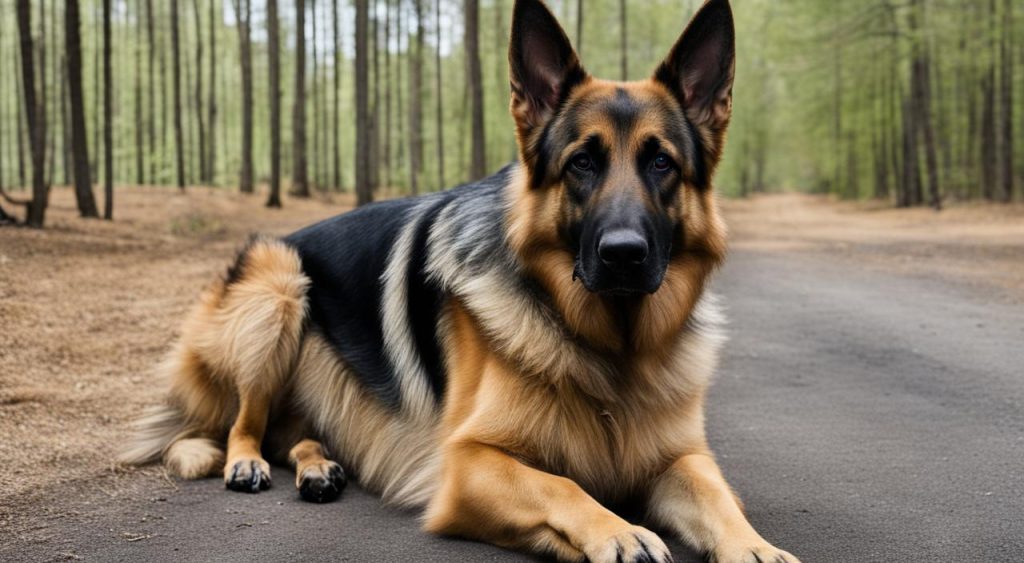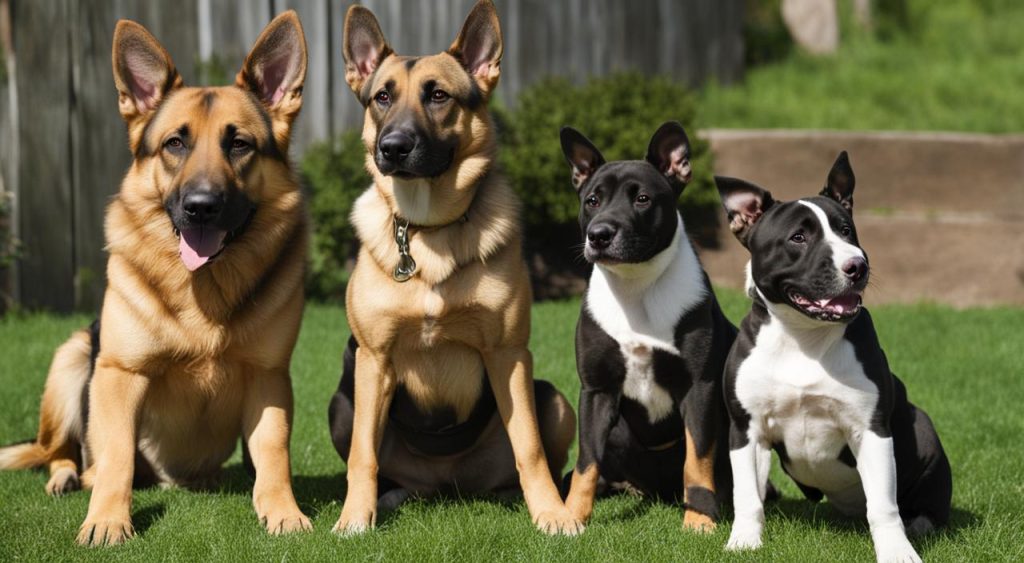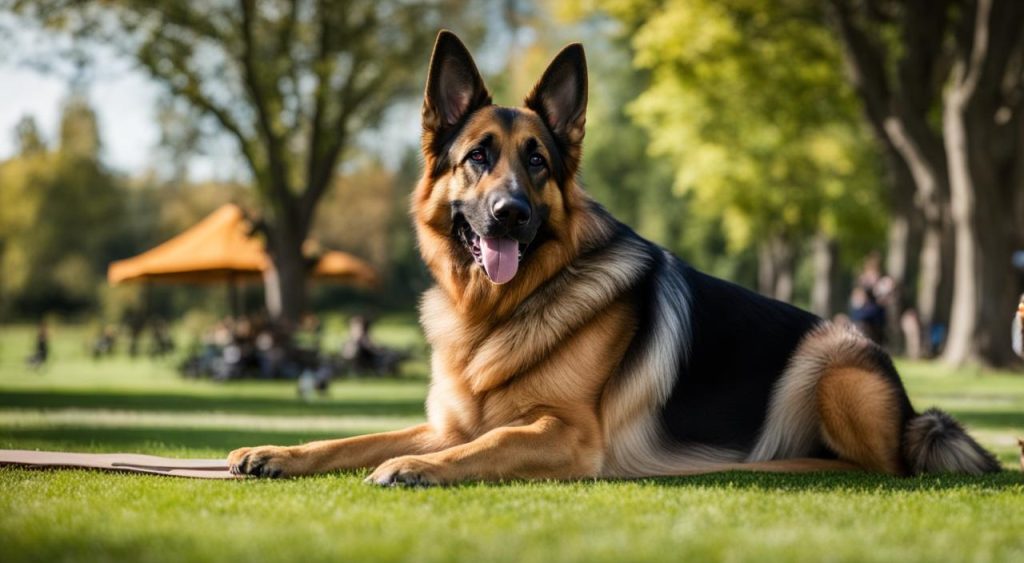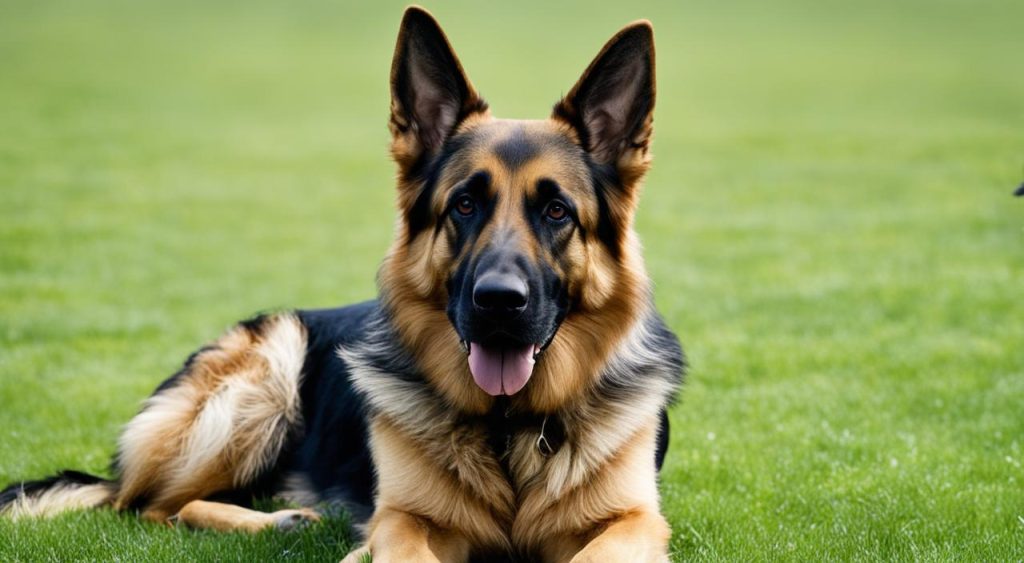Aggression in German Shepherds can be a concerning issue for owners. It is important to address this behavior to ensure the safety of others and prevent any potential harm. Training a German Shepherd not to be aggressive can be challenging but is crucial for their well-being. This section will provide strategies and tips to help you curb aggression in your German Shepherd.
Key Takeaways
- To address aggression in your German Shepherd, it is crucial to understand the underlying causes.
- Identifying specific triggers and reasons behind aggression will help in developing an effective training and behavior modification plan.
- Socializing your German Shepherd and using obedience commands can increase control and reduce aggression.
- Positive reinforcement methods like treats and toys can be effective in training your German Shepherd.
- Seeking professional help from a veterinarian or dog trainer may be beneficial in more severe cases.
Identifying the underlying causes of aggression
The first step in managing aggression in German Shepherds is to identify the underlying causes. Aggression can be triggered by various factors such as fear, territoriality, possessiveness, frustration, redirected aggression, social issues, dominance, or even pain.
Understanding the specific triggers and reasons behind your German Shepherd’s aggression is crucial in developing an effective training and behavior modification plan. By pinpointing the root causes, you can address them directly and work towards reducing aggression in your German Shepherd.
Training and Behavior Modification Techniques
Once the underlying causes of aggression have been identified, it is important to implement proper training and behavior modification techniques to address and manage aggression in German Shepherds.
Socialization with other pets and people is essential in reducing aggression. Exposing your German Shepherd to different environments, individuals, and animals can help them become more comfortable and less reactive. Gradual exposure and positive experiences will assist in shaping their behavior.
Introduce your German Shepherd to new faces and situations regularly. Consider enrolling them in obedience classes or scheduling playdates with well-behaved dogs to enhance their social skills.
Additionally, using obedience commands can help increase control over your German Shepherd’s actions. Teaching them commands such as “sit,” “stay,” and “leave it” can redirect their focus and prevent aggressive behaviors.
Practice obedience commands consistently and reward your German Shepherd with treats and praise when they respond correctly. This positive reinforcement helps reinforce good behavior and strengthens the bond between you and your dog.
Positive reinforcement methods, such as using treats and toys as incentives and rewards, can be highly effective in reducing aggression. Rewarding your German Shepherd for calm, non-aggressive behavior helps create positive associations and encourages them to behave appropriately.
When your German Shepherd exhibits non-aggressive behavior or responds well to commands, offer treats, playtime, or affection to reinforce positive behavior and encourage more desirable responses.
Consistency and patience are crucial when training a German Shepherd to reduce aggression. It is important to maintain a structured and predictable environment, as inconsistency can confuse your dog and hinder progress. Training may take time, especially if the aggression has developed over a long period.
Stick to a consistent schedule for training sessions and reinforce the desired behavior consistently. Be patient, as changes in behavior can take time, and progress may be gradual.
For more severe cases or if you are struggling to manage your German Shepherd’s aggression, seeking the help of a veterinarian, professional dog trainer, or behaviorist can be beneficial. These experts have the experience and knowledge to provide personalized guidance and techniques to address your specific situation.
“+ ””If you’re struggling with your German Shepherd’s aggression, don’t hesitate to seek professional help. A veterinarian, professional dog trainer, or behaviorist can provide the expertise and support you need to effectively manage and address your dog’s aggression.”
Conclusion
Aggression in German Shepherds should not be ignored or taken lightly. It is crucial to address this behavior promptly to ensure the safety of both your dog and others. By identifying the underlying causes of aggression, you can develop an effective training and behavior modification plan.
Remember that patience and consistency are key throughout the training process. Implementing positive reinforcement techniques, such as using treats and toys as rewards, will encourage your German Shepherd to exhibit non-aggressive behavior.
If you find that the aggression persists or worsens, it is advisable to seek professional help from a veterinarian or a trained dog behaviorist. They can provide expert guidance and support to address the aggression properly.
With dedication and effort, you can guide your German Shepherd towards becoming a well-behaved and non-aggressive companion. Take the necessary steps today to create a safe and harmonious environment for both you and your pet.

